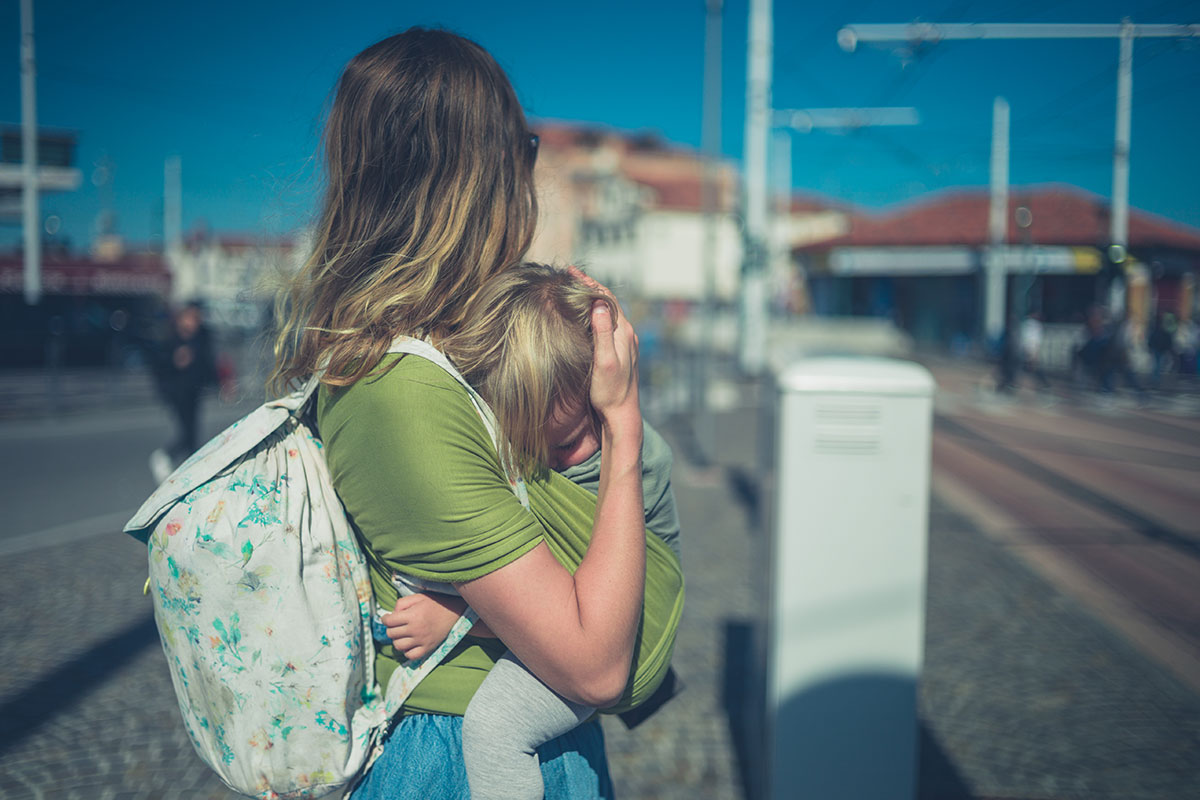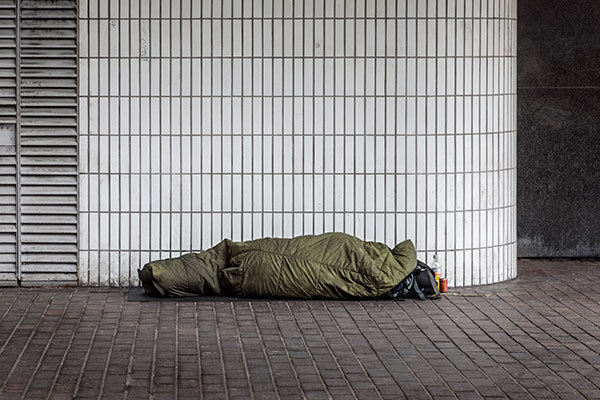You are viewing 1 of your 1 free articles
Homelessness report: ‘Basic minimum’ not being met to support children and families in Northern Ireland
A report on homelessness in Northern Ireland has found that the “basic minimum” is not being met to support children and young people.
Produced by Queen’s University Belfast, on behalf of the Northern Ireland Commissioner for Children and Young People (NICCY), it found that young people could live in temporary accommodation for years, leaving them more vulnerable to abuse, and that some living conditions were “uninhabitable”.
It found that while most children do live in adequate housing, there was “a long way to go to achieve this for all children and young people”.
In a foreword to the report, Koulla Yiasouma, the commissioner, said it “shows that for too many Northern Ireland still has a long way to go to achieve the basic minimum for its children”.
The commissioner makes several recommendations to the Northern Ireland Housing Executive (NIHE) in the report, including never placing anyone under 18 into bed and breakfast accommodation.
Data from the NIHE, which supports those facing homelessness in Northern Ireland, shows that nearly a third of homeless households have children aged under 18 living in them.
Between January and June 2022, households accepted as homeless included 3,495 children.
In July 2022, 3,913 children aged under 18 were living in temporary accommodation in Northern Ireland, up from 2,433 in January 2019.
The report, published on Thursday, was produced using a rights-based approach to understanding the lived experience of children and families facing homelessness or housing insecurity.
Titled A Place to Call Home, it focused on families with children, young people (18-21) who are care leavers or who have a disability, and families seeking asylum.
The research found that housing pathways were characterised by “constant movement between unstable forms of accommodation”, indicating a “lack of security of tenure for large periods of time”.
According to the report: “Young people were more likely to have navigated several different living situations, and both families and young people described periods of hidden homelessness, relying on family and friends.
“The instability created stress and anxiety, being constantly reminded of the fragility of their situations, aware of the conditions on their stay and the potential to be asked to leave at any moment.
“Many stayed in temporary accommodation for a number of years and young people often ended up returning to unstable family environments for lack of other options, continuing cycles of abuse and instability.”
The condition of temporary accommodation was also found to be inadequate.
“Conditions across a range of temporary settings meant that participants lived in largely uninhabitable conditions – families in hostels and single lets, enduring cold, damp and disrepair.
“Cramped conditions compromised children’s right to privacy, their ability to study and play, as well as affecting families’ ability to spend time with one another,” the report said.
It also found that family routines were disrupted by placements in locations far from school and that raised “safety concerns due to criminal activity and harassment”.
“This was also a concern for young people who accessed temporary accommodation, exposed to violence, drug use and felt unsafe around adult residents,” the report said.
The report raised concerns about the treatment of families seeking asylum.
It said the state is obliged to provide “appropriate protection and humanitarian assistance” to ensure asylum-seeking children can realise their rights.
But families highlighted several issues, such as lack of space for children to play or study.
“Health issues like malnutrition have arisen due to the lack of adequate food provided to families, with many of them needing to access healthcare as a result,” according to the report.
They said such health issues were exacerbated by challenges in accessing healthcare.
“When participants voiced complaints about the inadequate conditions they were met with dismissal and intimidation,” the report said.
Families’ cultural lives were hindered by restrictions in space and access to culturally appropriate food for religious celebrations.
The report recommends that the NIHE and the Department for Communities (DfC) must ensure that they have taken account of the rights of children and young people using Child Rights Impact Assessments when developing housing policy and solutions.
Recommendations include:
-
Health and social care trusts should conduct children-in-need assessments in relation to all 16- and 17-year-olds who present as homeless
-
The NIHE must never house young people under the age of 18 in bed and breakfast accommodation
-
The NIHE must ensure that temporary accommodation provided to families is of an adequate standard to enable the realisation of children’s rights, including their rights to family life, privacy, education, health, play, leisure and social engagement
-
Families must only be placed in temporary accommodation for the shortest time possible. This is also the case for asylum-seeking families provided accommodation by the Home Office
-
Improved data on the scale and nature of hidden homelessness among young people is needed to inform planning of supports and services, and to facilitate targeted awareness raising of services among at-risk groups
Responding to the report, Grainia Long, chief executive of the NIHE, called for a strategic shift towards the prevention of homelessness.
She said: “Our statutory obligation is to provide solutions for homelessness, when it has occurred. However, demands for services have meant that too often we are in ‘emergency’ or ‘response’ mode.
“A holistic approach to homelessness requires a strategic shift towards prevention.
“Widening our statutory obligations to prevention of homelessness would enable us to focus and invest more in preventative measures.”
Ms Long said the report “reinforces the importance of focusing on the prevention of homelessness to avoid reliance on temporary accommodation and solutions”.
She said homelessness was a priority for the housing executive and its homelessness strategy 2022-27 was supported with an annual action plan.
Ms Long added: “We believe that no child should ever have to spend a prolonged period of time in temporary accommodation.
“However, the housing sector is under immense pressure in this area, facing ongoing increased demands for temporary accommodation.
“There is a level of complexity involved in ensuring the right housing and support solutions and we work with our statutory, voluntary and community partners to provide these services in extremely challenging circumstances.
“I will now take time to consider the findings and recommendations of the report, and their implications for practice.”
A DfC spokesperson said: “The department is committed to making sure homelessness is as rare as possible.
“Where it cannot be prevented, it should be as short as possible and not reoccur.
“We welcome the work of the Northern Ireland Commissioner for Children and Young People and will consider the recommendations this report contains along with the NI Housing Executive.”
Sign up for our Northern Ireland bulletin
Already have an account? Click here to manage your newsletters











